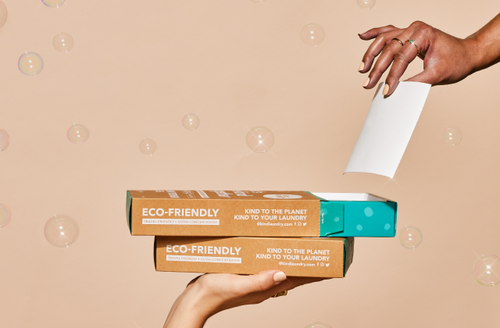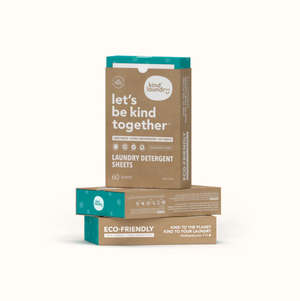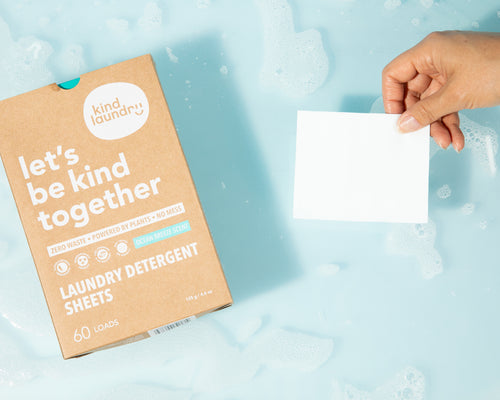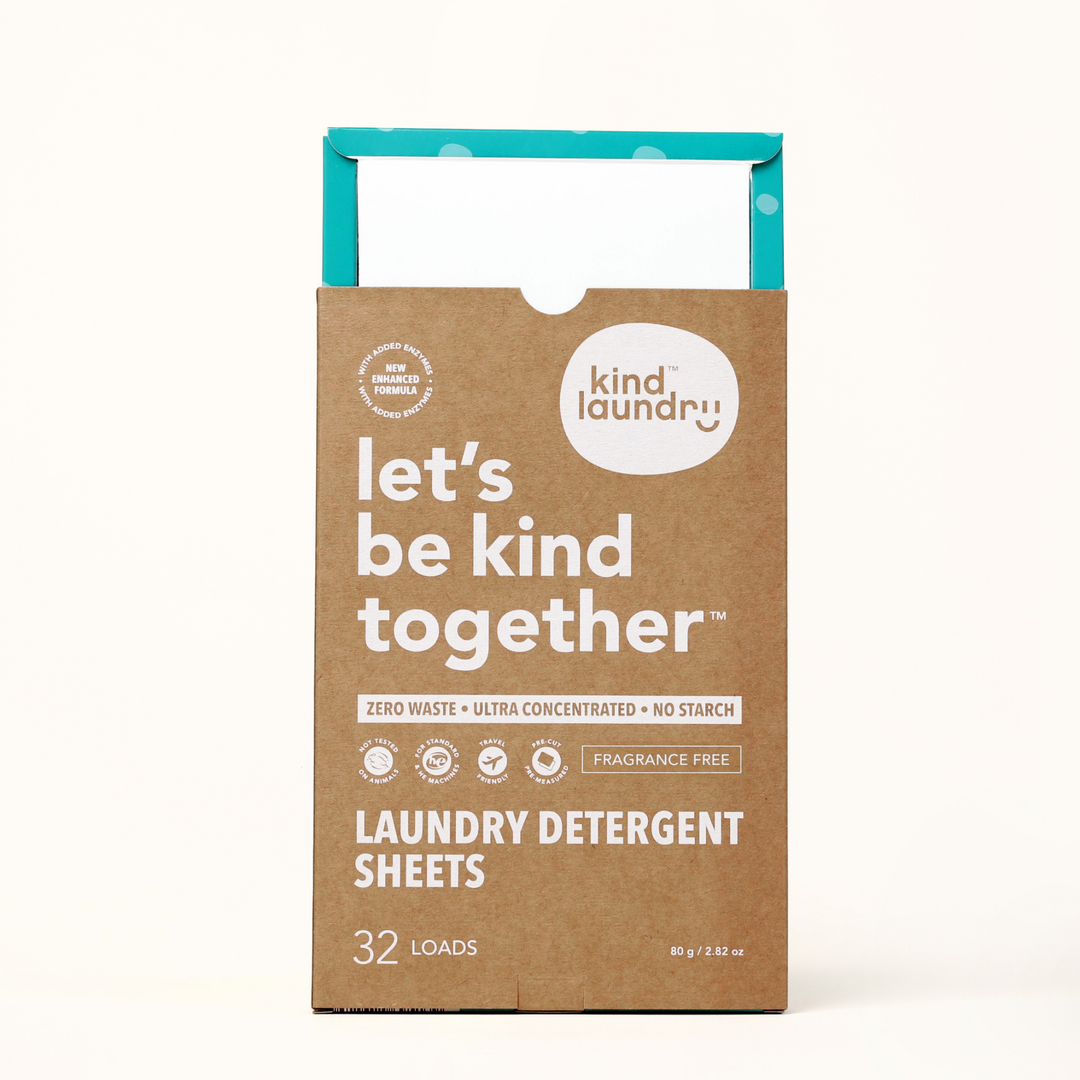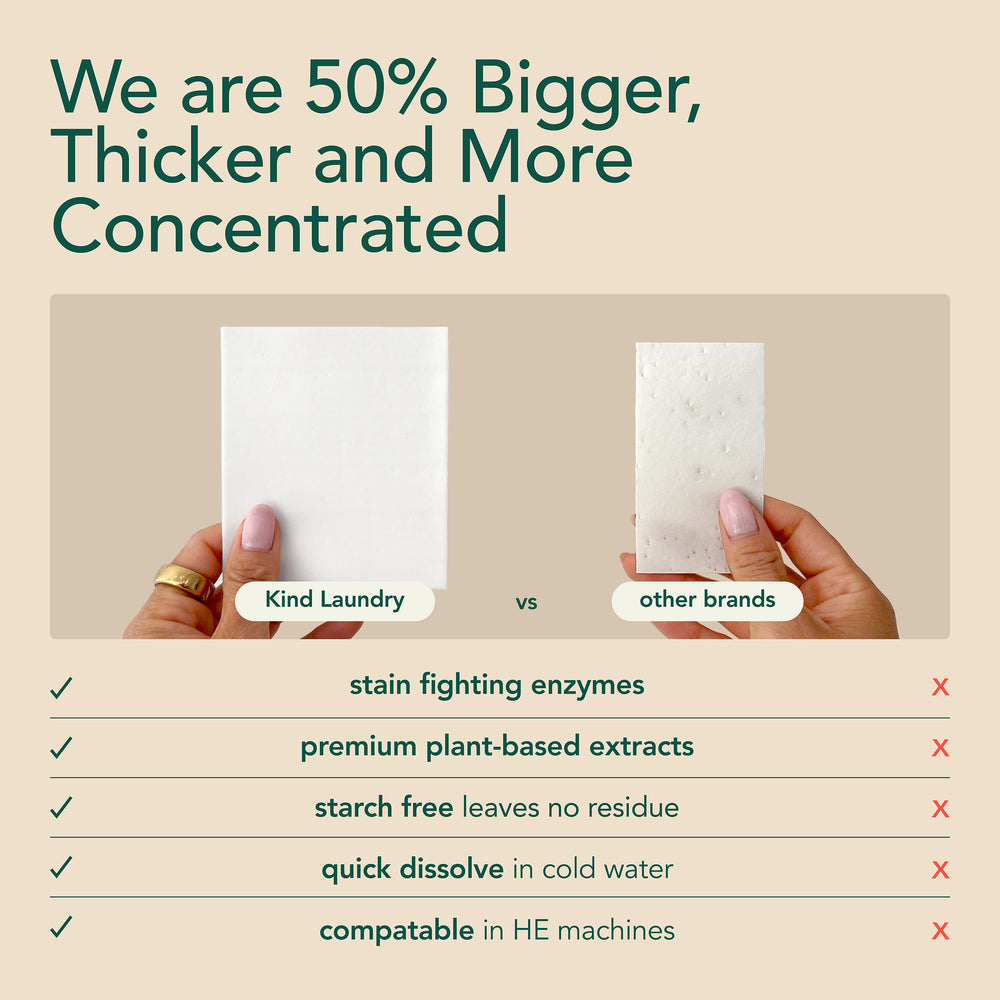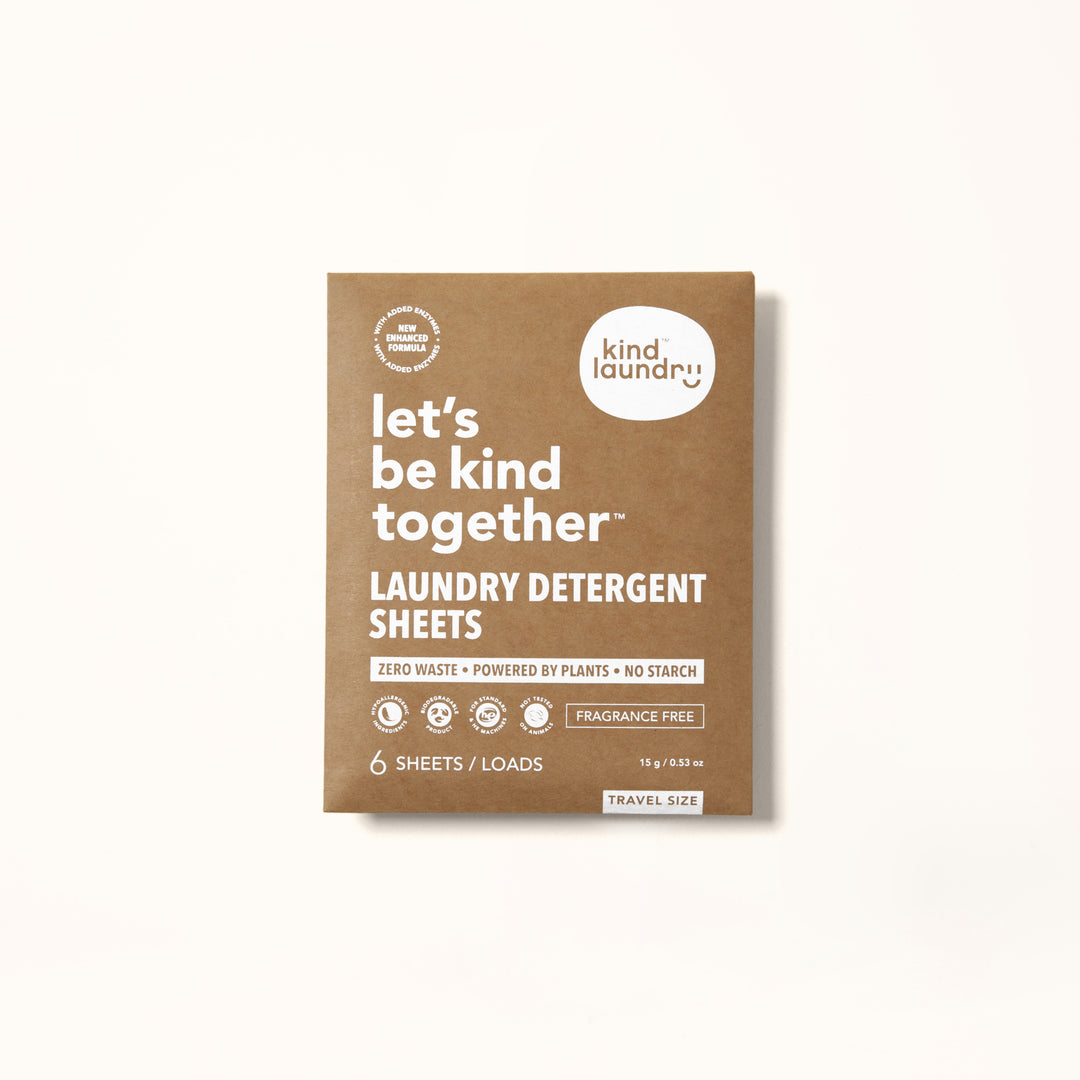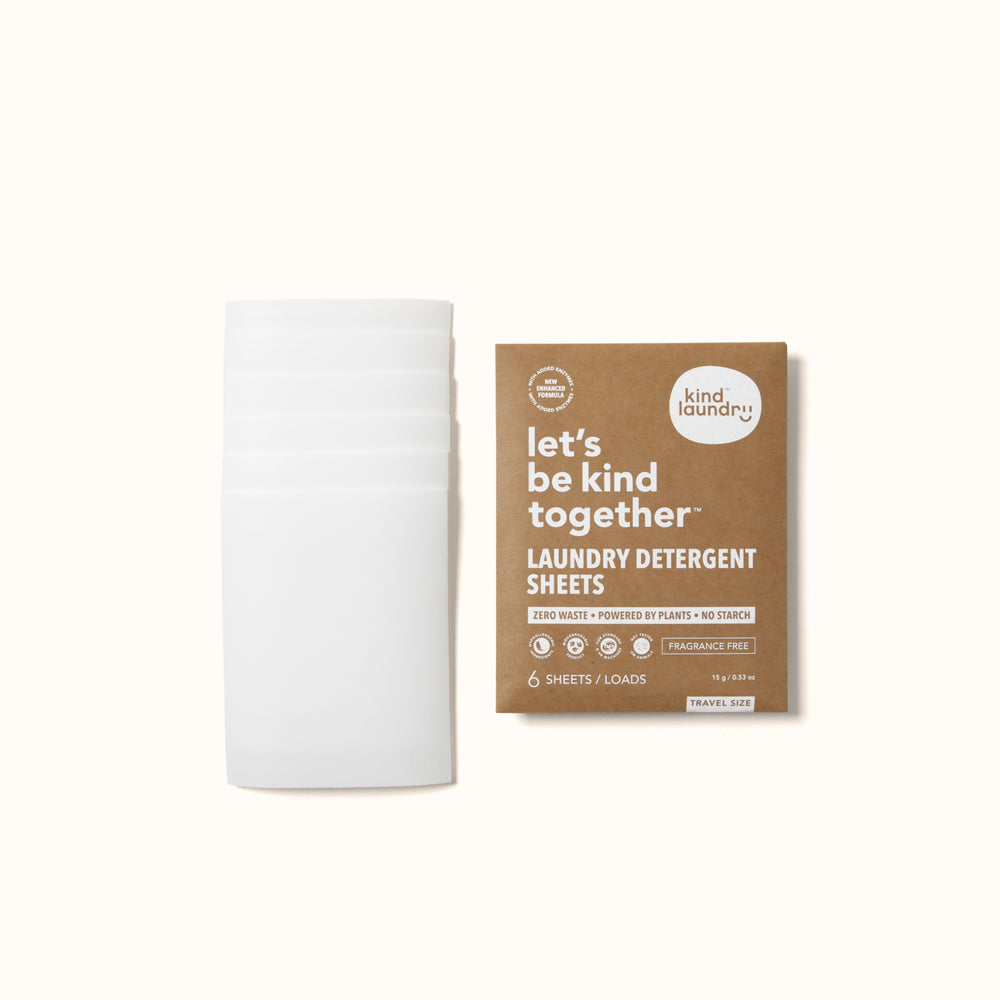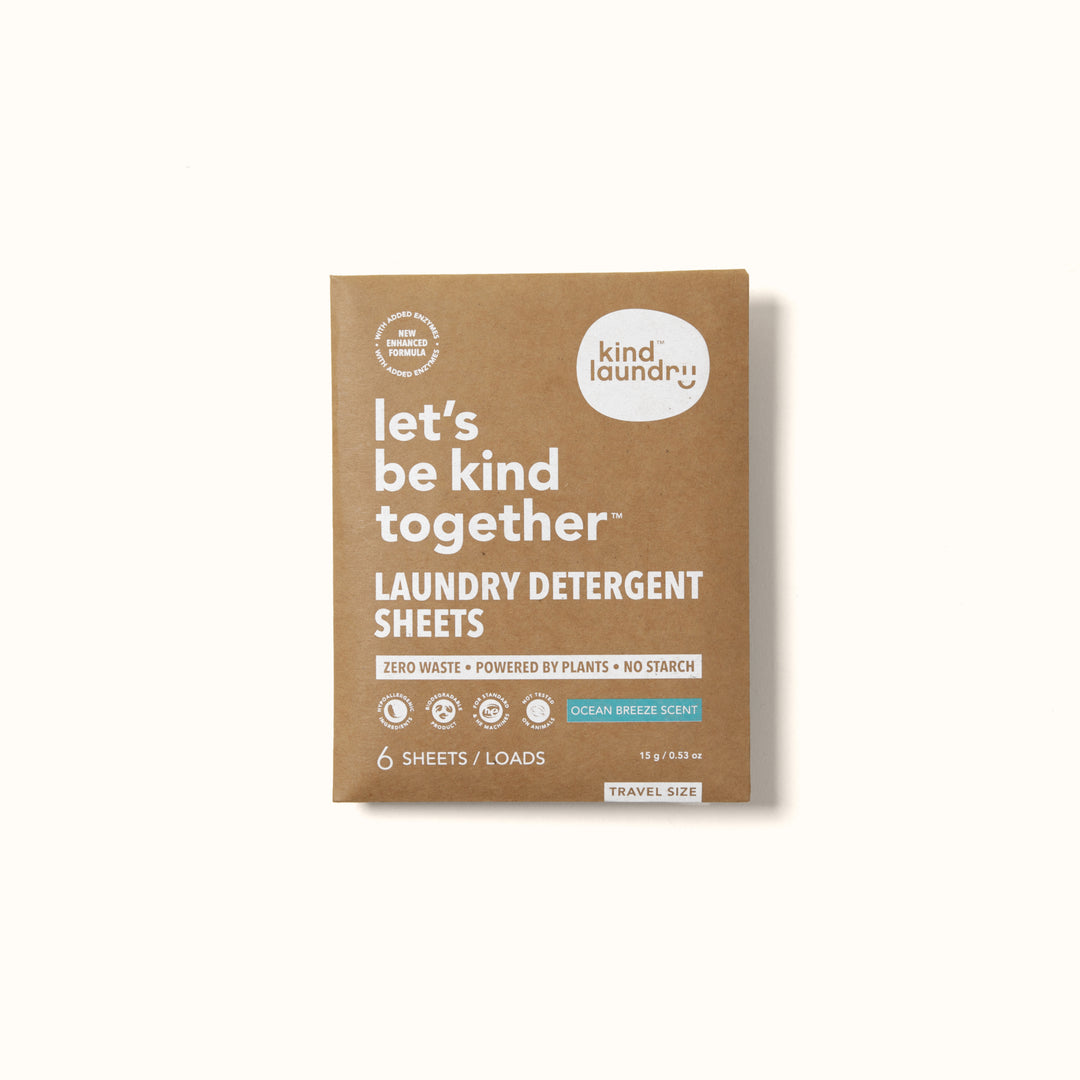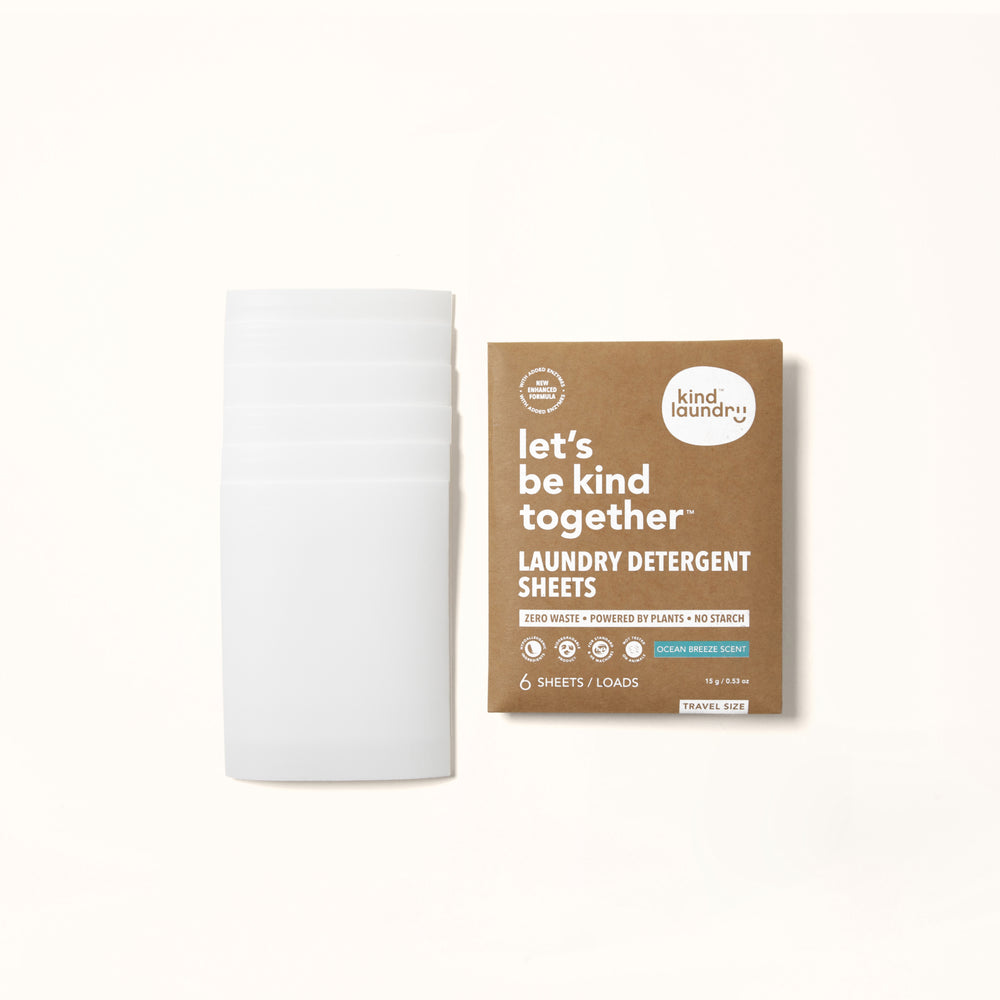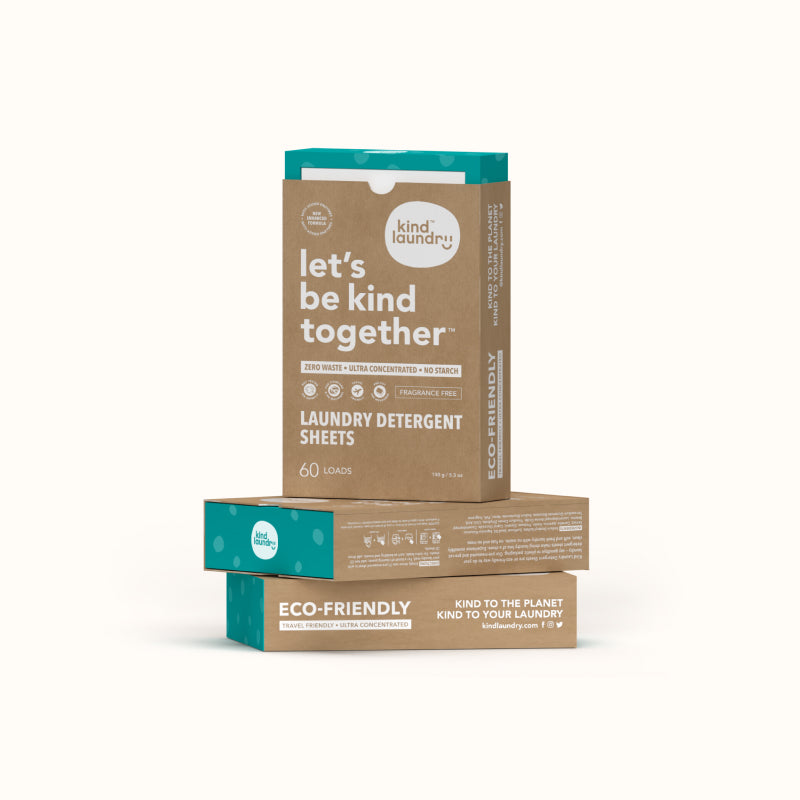As a society, we have a growing awareness of the harmful additives in our food and products around the home. While we may pay close attention to bathroom and kitchen chemicals and detergents, what about the laundry room? Have you ever wondered what impact do laundry detergents have on the environment? And is there an eco-friendly alternative to traditional detergents?

How Does Laundry Detergent Harm The Environment
The impact of laundry detergent on the environment is twofold. There are the chemical effects and also the long-term impact related to their plastic packaging.
Chemical Effects
Laundry detergent is far more than just a basic cleansing soap. It contains a huge number of harmful chemicals that have a serious impact on our environment. Some of the most concerning ones are:
- Phosphates - linked to cardiovascular (heart) disease as well as osteoporosis. These toxins are particularly damaging to the marine environment when dispersed in wastewater from your wash.
- Bleach - often used to brighten whites, its toxic fumes cause respiratory distress and on contact with skin and eyes it is able to cause caustic burns.
- Formaldehyde - A chemical usually associated with the preservation of dead bodies. This toxic ingredient as classified by the EPA , is a class B1 probable carcinogen. This means it has been linked with an increased risk of cancer.
- Ammonium Sulfate and Ammonium Quaternary Sanitizers - harsh cleansing agents that are corrosive and toxic. They can cause eye, skin and lung damage even with minimal exposure.
- Dioxane (1,4 Dioxane/ Diethylene Dioxide/ Diethylene Ether/ Dioxan) is quite possibly one of the worst additives. Dioxane is also a carcinogen and has been known to pose a combustion risk. Exposure to this toxin can damage your kidneys, lungs, central nervous system, eyes, skin and respiratory function.
Packaging effects
Up to 1 billion plastic detergent jugs are purchased in the US alone each year, with only 10% of these ever being successfully recycled. It stands to reason that this waste has to go somewhere, right? Sadly it most often ends up in landfills where the residues of the detergents leech into the soil and the plastic remains for hundreds of years. This is probably the most harmful and concerning effect of detergent on the environment.
Negative Effects of Detergents on the Environment
So how do these chemicals and the packaging impact different components of the environment? Let’s take a closer look.

Aquatic life
The presence of phosphates in laundry detergent run-off causes algal blooms which starve aquatic life of oxygen. The same chemical compounds that can burn our skin, cause cancer or hormonal issues also affect marine life. This means unnecessary cruelty and also impairs the function of the necessary ecosystems that we rely on.
Pollution
Synthetic surfactants contained in laundry detergent reduce the tension of the water’s surface, making it susceptible to pollutants such as car exhaust and pesticides. This further impacts the aquatic environments and makes it even harder for the marine animals in these environments to flourish.
All this combined with the plastic waste just goes to demonstrate how laundry detergent may clean your wash, but it is seriously doing the dirty to our environment!
What Kind of Laundry Detergent is Least Harmful?
If you were hoping it would be as simple as avoiding pods or powder, unfortunately, it isn’t. While they may differ in their delivery their chemical composition is often very similar. There are a few factors to consider when deciding which is the most or least harmful kind of detergent to the environment.

Liquid
Liquid detergent is considered one of the worst offenders, not necessarily due to its ingredients, but as it is always sold in a heavy-duty plastic bottle. These bottles are rarely recycled despite being advertised as recyclable. In reality, billions of detergent jugs end up in our oceans, waterways and landfill every year all around the globe.
Most liquid detergents are also heavily watered down. This contributes to a waste of water as well as a larger carbon footprint due to the added weight.
Powder
Don’t be fooled, it may come in a cardboard box, but inside there is a plastic scoop and a litany of toxic ingredients. Powders are also known to leave long-lasting marks on dark clothing. Like liquid detergents, powder can easily make a huge mess in your laundry room. Spilled powders tend to infiltrate every crevice on the floor and can be a pain to clean up.
Pods
No mess, easy to use, but sadly still very toxic and not only to the environment. Alarmingly according to reports ‘between 2012 and 2013, poison control centres reported over 7,000 cases of young children eating laundry pods, and ingestion of Procter & Gamble laundry pods had resulted in six deaths by 2017.’
This is largely in part to their bright colours and appealing fragrances, they are easily confused by children as a sweet treat. With pods being susceptible to splitting due to their dissolvable casing, they are most commonly stored in plastic tubs to seal them from the moist environment of the laundry room.
Sheets
Sheets are an ingenious and relatively new laundry detergent option. Thankfully, the majority of laundry sheets available are eco-friendly with a focus on biodegradable and plant-derived ingredients. In addition, laundry sheets require minimal packaging and are able to be stored in cardboard. It is important to note that some brands of laundry sheets will use filler ingredients such as starches that build up in your washing machine.
What Other Choices Do You Have?
If making your own detergent from natural ingredients such as borax, washing soda and essential oils doesn’t appeal, how do you skip the toxins, plastics and protect our environment?
The answer is to choose a laundry detergent that uses minimal, plant-based ingredients and completely biodegradable packaging. The eco-friendly laundry detergent sheets developed by Kind Laundry offer exactly that.
Just 5 concentrated, plant-derived ingredients that are safe for marine environments and packaging that can be composted or recycled in full. Kind Laundry makes it easy to be kind to the environment without sacrificing clean washing. Shop laundry sheets today and experience the Kind Laundry difference.
